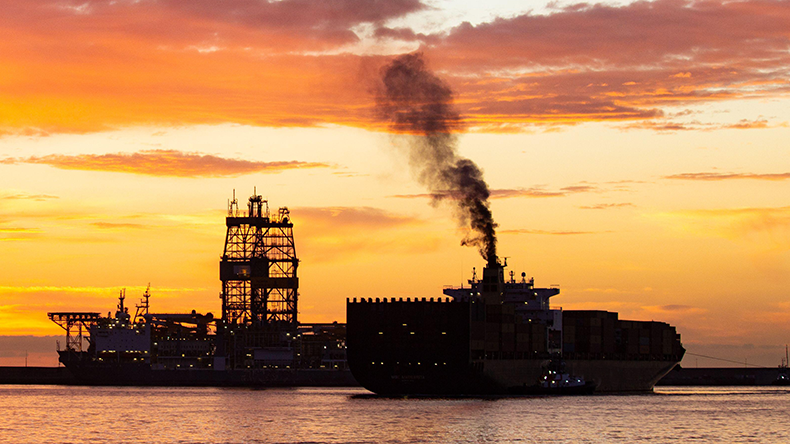London ‘losing ground as marine insurance centre’
Market share falling and lumbered with world’s highest cost base, but London still boasts unrivalled expertise and capacity, executives argue
London probably still is the world’s leading centre of marine insurance, but has lost considerable ground in recent years, an industry audience has been told.
The issue was the subject of a panel discussion at the Marine Insurance London 2022 conference this morning.
Richard Turner, president of the International Union of Marine Insurance (Iumi), argued the UK capital was arguably clinging to the top spot, but “compared to where we were, not nearly so much”.
In the context of global marine insurance premium volume that stood at $30bn in 2015 and now alike, London’s share had fallen from $8.5bn to $6.5bn.
Brexit had meant Turner’s company, Victor Insurance, was now writing 30% of European Economic Area marine business on the continent, although this was probably a higher proportion than its peers.
The decline is due in part to cyclical factors, but also to structural ones.
“London has some issues… the cost base of the market is too high,” Turner said. Indeed, the cost base is probably the most expensive in the world.
“The strength of expertise in the market is not what it once was,” he added. “There are some things that London needs to grapple with and get hold of.”
Nevertheless, it still represents a real cluster of expertise and stands out by its openess to innovation.
David Cox, chief executive of Matthews Daniel, agreed with qualifications. London cannot rest on hundreds of years of history and needs to look at what it means to be a marine centre in the modern era, he said.
Matt Roles, head of underwriting performance at Lloyd’s, pointed out London has a 15% to 20% share of the global marine market but cannot afford complacency. But it has done good work in improving underwriting performance.
“We need to recognise the need to be alive to the changing world out there,” Roles said. “To stay relevant you have to react accordingly. Over the years we have learned traditional classes of business can be a little bit slow to react.”
Iain Henstridge, head of hull at Apollo Underwriting, agreed portfolios had been tidied up and this had helped turn the market. London also has the advantages of a fortuitous time zone advantage and the English language.
But he disagreed with Turner that talent is being lost. London marine insurance still has a workforce that is better educated than a generation ago. It is also more diverse, albeit not yet at senior level.
“London leads culturally, that is a massive factor now,” Henstridge said. “The thought leadership for this class tends to lie in London. It’s a global insurance force, the whole city is. I think London has got a great story to tell.”
Paul Greensmith, head of global specialty at AIG, maintained recent rate increases will add to premium volumes.
“London is still the pre-eminent market for large complex marine business globally, with deep pools of expertise and capacity provided through a subscription marketplace,” Greensmith said.
“But a lot has changed over the past few years,” he said. “There are more options now. People have options and London needs to invest in those two big advantages.”
It is also not doing enough to invest in talent, especially in tech, Greensmith added.
Asked what London’s unique selling points are, Greensmith summarised them as expertise and subscription market capacity, which he described as material differentiators.
“When I go on my travels, there is a still a kudos to working in the London market. We will remain relevant in large and complex business for the foreseeable future. Things are not going to change overnight,” he said.
Cox pointed to London’s strength in adjacent sectors such as shipbroking, ship finance and maritime law, but agreed cost is an issue. Face-to-face interaction, formerly a big USP, has been lost over past two years.
“You can be sitting on a beach in Bali placing business,” he quipped. But London remains a nexus environment.
Roles said Covid had helped people embrace technology, but hybrid working is still bedding down and the advantages of having people back in the workplace are apparent.
Turner said the ability to see people is something we used to take for granted. But in this day and age our clusters take different forms, including colleagues in other countries.
“The concept of what sits in London has changed and will continue to change,” he said.
Another session at the event discussed environmental, social and governance (ESG) issues.
Lars Lange, secretary general of Iumi, said up to 90% of member associations saw ESG as an important priority.
Some 15-20% of organisation’s time is now devoted to ESG issues from illegal fishing to ship scrapping. ESG is not a bolt-on but central to good underwriting.
“This is not about doing good and getting a good press,” Lange said. “This is already happening and effecting our business.”
The most obvious example is climate change, which is already having an impact on claims scenarios.
Nick Shaw, chief executive of the International Group of P&I Clubs, agreed ESG is here to stay and is already embedded in International Group practice.
“Reinsurers have someone to talk to, governments have someone to talk to and shipowners feel their voice is being heard,” he said. “We do take the S and the G very seriously. It’s not just about how to decarbonise.”
This article first appeared in Lloyd’s List, a sister publication of Insurance Day



.jpg?rev=8fc8322b572f48e7b776ad4031e9ab4a)
.jpg?rev=63600ae362224110b05f04c4b8ce7a6b)